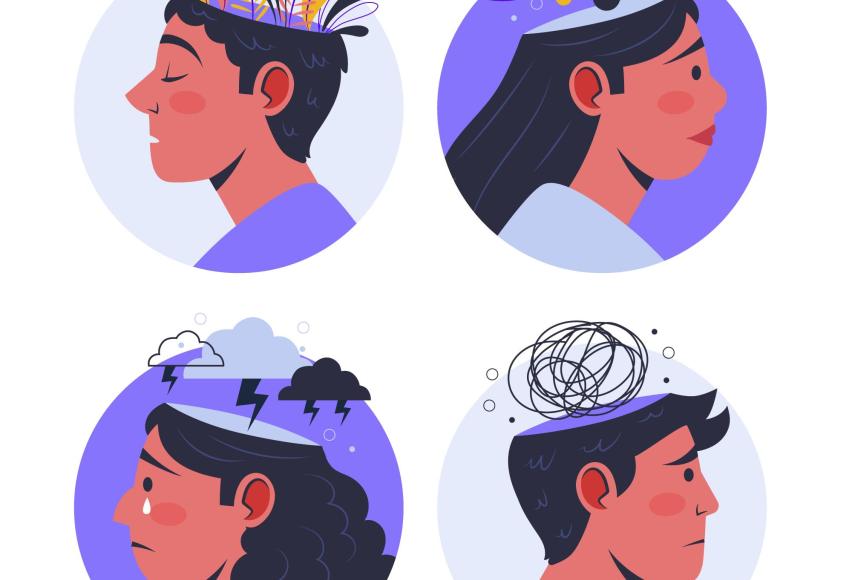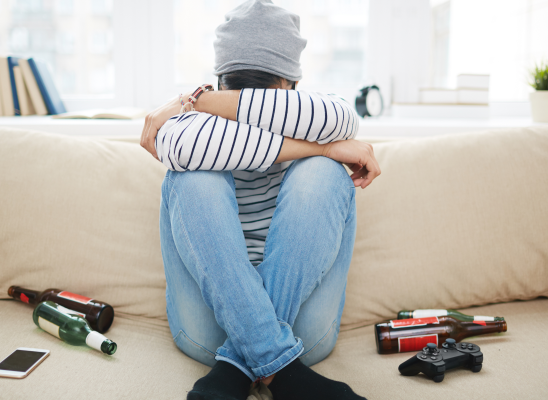
Online test
Find out the severity of your symptoms with this free online test
When you think of going to therapy, what probably comes to mind is finding a therapist and going to their office for sessions. You might also have to take time off work and arrange for childcare. All of these things cost you time and money. It’s no wonder that mental health care lags behind other types of care. In fact, only a fraction of people with mental health issues receive treatment.
Treatment for Obsessive-Compulsive Disorder (OCD) has traditionally consisted of in-person therapy. Yet, despite effective treatments, it’s estimated that about 60% of people living with OCD do not seek treatment.
Accessing mental health care hasn’t always been easy. The pandemic has made finding in-person care even more challenging. Internet-based therapy has emerged as an alternative to in-person care. But with anything new comes the question of effectiveness. Is it possible to effectively treat OCD via online therapy? The research says yes.
Why Go Online?
One of the great things the internet has brought us is access to information and services that were, historically, difficult to access. Mental health care is no exception. Once available only through an in-person visit to the therapist’s office, you can now access quality mental health care virtually anytime, anywhere.
Digital interaction is now widely used and often preferred, especially by teens and young adults. It’s familiar and comfortable. In fact, children and adolescents who participated in an online CBT-based (Cognitive Behavioral Therapy) program reported high levels of satisfaction and acceptance of treatment as well as symptom reduction. Their parents rated the program as useful and easy to use. This is particularly important because OCD onset is generally before age 25, and often in the child or teen years.
Online therapy, sometimes referred to as Telemental Health (TMH) emerged largely in response to the growing digital use and the need for better accessibility to care. Factors like living in a rural or underserved area, cost of therapy, finding a local mental health clinician, and even finding time to go to an appointment all make in-person therapy difficult. Add in a pandemic and accessibility really became an issue. As a result, the use of online therapy services for many disorders, including OCD, has grown exponentially, providing access in ways not previously available. If you have access to a smartphone, a tablet, or a computer, you can access care.
Is Online Therapy for OCD Effective?
Online therapy for OCD is more than just convenient. A 2021 meta-analysis of research related to online treatment for OCD in children and teens found that online CBT-based (Cognitive Behavioral Therapy) is indeed effective. In fact, online therapy has been found to be at least as effective as in-person therapy and, in some cases, maybe more effective.
Online therapeutic activities can take many forms including:
- Synchronous (live/real-time) sessions between therapist and client using a secure video-conferencing platform or phone call/audio
- Asynchronous (not real-time) interactions such as email, texts, evidence-based apps,
- Self-help activities including online self-paced programs, online forums, wearable tech
The analysis found that all modes of treatment delivery resulted in symptom reduction. Live, face-to-face sessions with a therapist using a video-conferencing platform were shown to be particularly effective for people with OCD. Having that real-time interaction with a therapist may enhance the therapist-client dynamic found in in-person sessions. Having a therapist and session time seems to also enhance accountability and treatment compliance.
TMH for OCD may also be effective for more intensive levels of care such as partial hospitalization (PHP) and intensive outpatient (IOP). These levels of care are indicated when outpatient therapy has not been sufficient to reduce the severity of symptoms and there is significant functional impairment. For people who cannot attend these intensive programs, online treatment can bridge that gap. A recent study found that CBT-based online therapy provided as part of PHP and IOP was as effective in symptom reduction as in-person care.
As with any form of treatment, one-size-does-not-fit-all. One study found that internet-based CBT for OCD was not as effective for some people. Three factors predicted less than optimal outcomes:
- Higher baseline severity
- Higher levels of behavioral avoidance
- Prior face-to-face (in-person) CBT treatment
This study highlights the need to be mindful of treatment options and how individual differences and needs can guide treatment. Alternative treatment modalities or designs might be more effective for someone with these factors present.
The Takeaway
Online therapy provides one more way for people to access affordable, effective mental health care. Findings like these offer hope for effective and personalized approaches to care. Exploring all the ways online therapy can fit into a treatment plan means more options for creating a treatment plan that is just the right fit.
References
1. Kohn, R., Saxena, S., Levav, I., & Saraceno, B. (2004). The treatment gap in mental health care. Bulletin of the World Health Organization, 82(11), 858–866. https://www.ncbi.nlm.nih.gov/pmc/articles/PMC2623050/
2. Orsolini, L., Pompili, S., Salvi, V., & Volpe, U. (2021). A Systematic Review on TeleMental Health in Youth Mental Health: Focus on Anxiety, Depression and Obsessive-Compulsive Disorder. Medicina (Kaunas, Lithuania), 57(8), 793. https://www.ncbi.nlm.nih.gov/pmc/articles/PMC8398756/
3. Hollmann, K., Allgaier, K., Hohnecker, C.S. et al. Internet-based cognitive behavioral therapy in children and adolescents with obsessive compulsive disorder: a feasibility study. J Neural Transm 128, 1445–1459 (2021). https://doi.org/10.1007/s00702-021-02409-w
4. Myers, K., & Comer, J. S. (2016). The Case for Telemental Health for Improving the Accessibility and Quality of Children's Mental Health Services. Journal of child and adolescent psychopharmacology, 26(3), 186–191. https://doi.org/10.1089/cap.2015.0055
5. Pinciotti, C. M., Bulkes, N. Z., Horvath, G., & Riemann, B. C. (2022). Efficacy of intensive CBT telehealth for obsessive-compulsive disorder during the COVID-19 pandemic. Journal of obsessive-compulsive and related disorders, 32, 100705. https://doi.org/10.1016/j.jocrd.2021.100705
6. Wheaton, M. G., Patel, S. R., Andersson, E., Rück, C., & Simpson, H. B. (2021). Predicting treatment outcomes from internet-based cognitive behavior therapy for obsessive-compulsive disorder. Behavior therapy, 52(1), 77–85. https://doi.org/10.1016/j.beth.2020.02.003
Online test
Find out the severity of your symptoms with this free online test
Start your journey with StopOCD
Take control of your life and find freedom from OCD through professional therapy and evidence-based cognitive behavioral techniques.
Start Now



